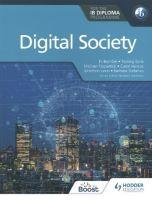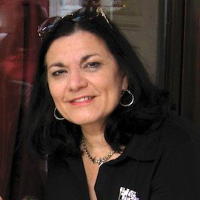

BLOGS > MARCH 27, 2023
BY BARBARA STEFANICS


One of the major dilemmas that has surfaced since the release of the Digital Society Guide and the publishing of our Digital Society coursebook is how to organize the topics and teach the learning activities and assessments in a well-organized course of study.
There are many dimensions that need to be considered. The first consideration relates to whether the class consists of:
All these possibilities contribute to a unique course outline.
The next challenge is organizing the sequence and depth of discussion of the three Cs: Concepts, Content, and Contexts. The course should be introduced through the Digital Society framework and by using simple inquiries and real-world examples that include digital technologies familiar to the students. Section 1: Understanding Digital Society and Section 2: Concepts from the Digital Society textbook demonstrate this approach and are aligned with the Digital Society Guide.
Next, students need an understanding of the various digital technologies (Section 3: Content) and need to investigate relevant real-world examples and the impacts of those digital technologies on individuals and communities. This is covered in more depth here than in Section 2: Concepts, and each topic in Section 3: Content relates to specific contexts and concepts. The digital technologies should not be studied in isolation.
At this point, Section 4: Contexts allows for the study of seven topic areas in any order. Each topic includes real-world examples that integrate Context, Content, and Concepts and ensures that all aspects of the Digital Society framework have been addressed. If the class consists of SL and HL students, the order of the topics for the SL/HL Core may need to be aligned with topics in Section 5 of HL Extension: Challenges and Interventions.
After the basic course outline is determined, it will need to be further developed by considering:
The Digital Society coursebook is organized so that topics from the various sections can be considered sequentially or integrated as needed in the course outline.
Here is my sample course outline for consideration. You might find it useful.
In considering the course outline, you need to remember to indicate:
I look forward to us collaborating and sharing our course outlines with the network of Digital Society educators!

Barbara Stefanics
Barbara Stefanics is an IB teacher, examiner, workshop leader, DP consultant and course reviewer, and a DS and technology faculty member for My IB.
Pippa Park Books Come to Life in New Video Series!
September 19, 2025
Middle graders aren’t reading for pleasure like they used to, and educators, booksellers, and families want a solution to get them excited about reading and sharing stories with their peers again. One part of such a solution is to meet...
Read more
Preview exciting fall 2025 eGalleys from Capstone!
September 15, 2025
We’ve partnered with Capstone and NetGalley* to provide digital access to 15 upcoming nonfiction and fiction titles releasing January 1, 2026. You’ll want to take advantage of this early access so you can then preorder the titles you love on...
Read more
Why the Food Group Series Continues to Take the Cake
September 15, 2025
From The Bad Seed to The Smart Cookie, Jory John and Pete Oswald’s Food Group series has become a staple in classrooms and libraries across the country. With its clever characters, laugh-out-loud humor, heartfelt lessons, and captivating illustrations, the series has helped educators...
Read more
2025 Fall Into Reading Giveaway with Orca Book Publishers
September 15, 2025
Three lucky winners will receive these new Orca releases – including both fiction and nonfiction – for their collection. Don’t miss out! Enter our giveaway by October 13, 2025 for your chance to win. Enter Today All the Things We FoundBy Joanne...
Read more
What We're Reading - September 2025 Edition
August 13, 2025
Welcome to another installment of What We’re Reading, a space where we share the titles we’re currently devouring – especially the ones that transport us to magical worlds filled with mythical creatures and daring adventures.This month, we’re diving into Impossible...
Read more
August 1, 2025
Camp Out with a Good Book: Fall 2025 Book eFairsDiscover some of the most anticipated books coming to Follett Book eFairs this fall in the Title Highlight Flyers below. Then, don’t miss the next chapter in our fun-filled camping adventure...
Read more